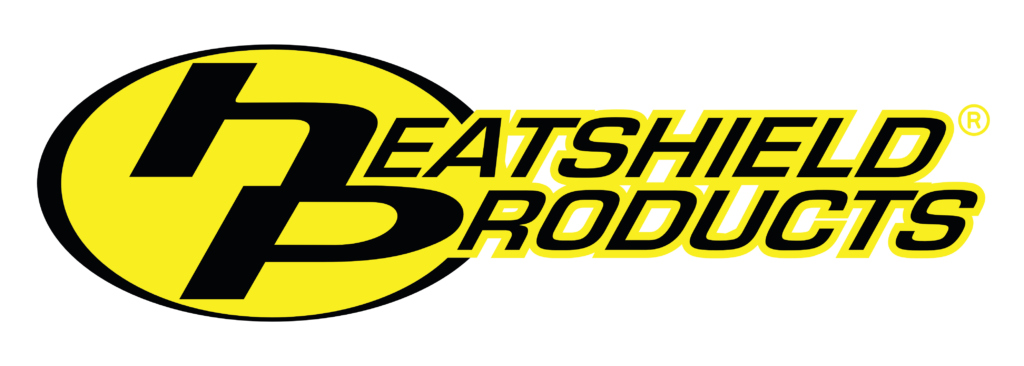Car Heat Insulation 101: The Basics of Exhaust Insulation
Heat insulators retain the heat of whatever they are placed upon. The most efficient way to fix a hot firewall, interior, or fuel cell is to stop heat at the source with car heat insulation. Most insulators are exhaust wraps, but there are other automotive heat shield options available. Typical insulators (like heat wraps) available on the market are comprised of fiberglass which is good for 1000 F of continuous direct heat. Fiberglass exhaust wraps and car heat insulation, however, can have special coatings applied to them such as “Vermiculite,” graphite, etc. which allow the wrap/insulation to take 1200 F of continuous direct contact.
Heatshield Products has taken the best heat insulation for cars one step further and developed a proprietary HPTC coating which allows fiberglass wraps to sustain 1350F of continuous heat. In addition, the wrap will remain flexible, strong, and abrasion-resistant even at those temperatures, providing superior heat protection.
Be cautious of any fiberglass wrap advertising or labeled as withstanding up to 2000 F — this is the maximum temperature a fiberglass exhaust heat wrap can withstand for less than 30 seconds. Anything above 2000 F for an extended period will cook your exhaust wrap causing it to get brittle and fall apart. Once the temperature exceeds 1200 F degree of continual operating heat, the chemical make-up of your wrap will actually change and crystallize.
Have you ever had a basalt (volcanic rock) wrap or car heat insulation get brittle and fall apart? Much like the fiberglass exhaust wraps, volcanic rock (basalt) exhaust wraps cannot sustain 1800 F of continuous heat. Even the best heat insulation and wraps for cars are designed to sustain operating temperatures of only 1200 F and can only take brief intervals of 2000 F for 30 seconds or less. So if your wrap has become brittle, you need to upgrade to a higher temperature wrap such as our Inferno Wrap or Heatshield Armor.
Please keep in mind, all the fiberglass, basalt (lava rock), and silica fibers used in these wraps and car heat insulation are water resistant — not waterproof. They will not cause pipes to rust because they “hold” water. If the pipes get soaked, the best way to prevent rust is to heat cycle the motor long enough so that the water evaporates. Any rust that occurs is usually a cause of a flaw in the metal, and, in this case, using even the best heat insulation for cars may accelerate the process. However, in a high-quality exhaust system, you should not see adverse side-effects or premature wear.
Using car heat insulation, like our Header Armor, instead of a wrap can help the pipes in your vehicle to breath — avoiding the risk of void warranties and making the header manufacturer happy. The same can be said for an exhaust heat shield like our Heatshield Armor. The same principle applies — by covering only a portion of the surface, the outer heat shield armor layer rejects water, leaving you with a 3-4″ gap on the bottom of the pipe. The manufacture of the exhaust system is happy, and you stay cool.
Exhaust pipes, mufflers, DPF’s, and catalytic converters are typical sources of radiant heat. Exhaust heat shields, such as Heatshield Armor, are ideal car heat insulation to manage this heat. Ready to find the best heat insulation for your car? Contact Heatshield Products today to find a vendor of our products near you!

